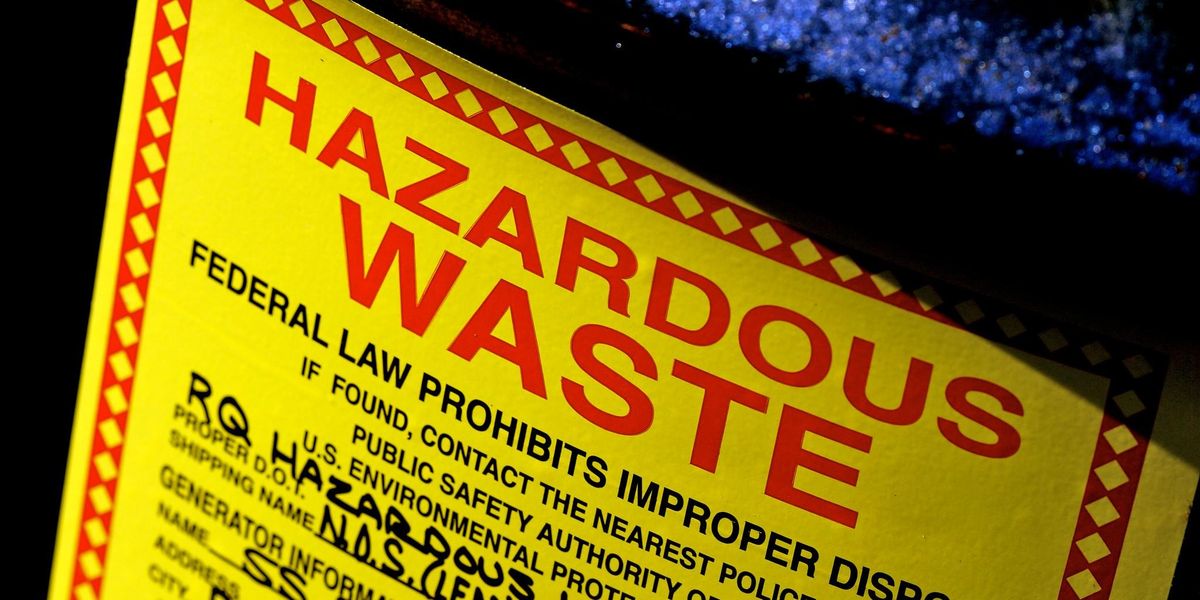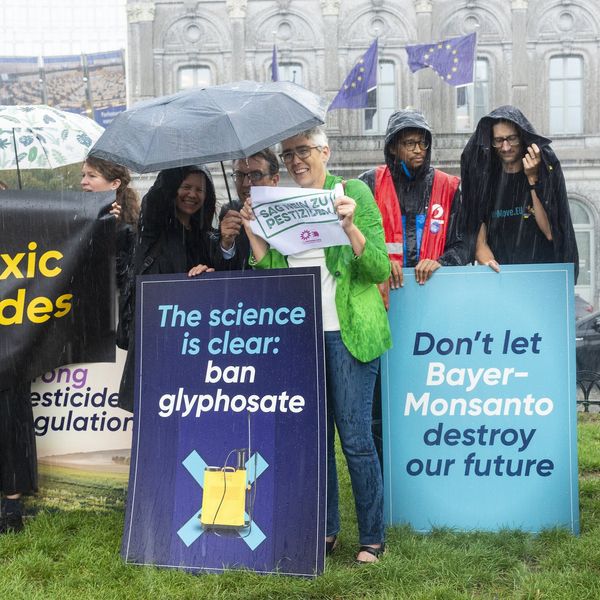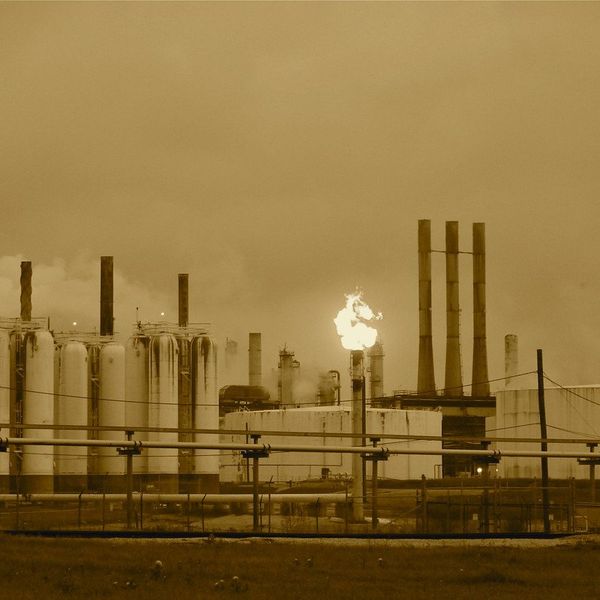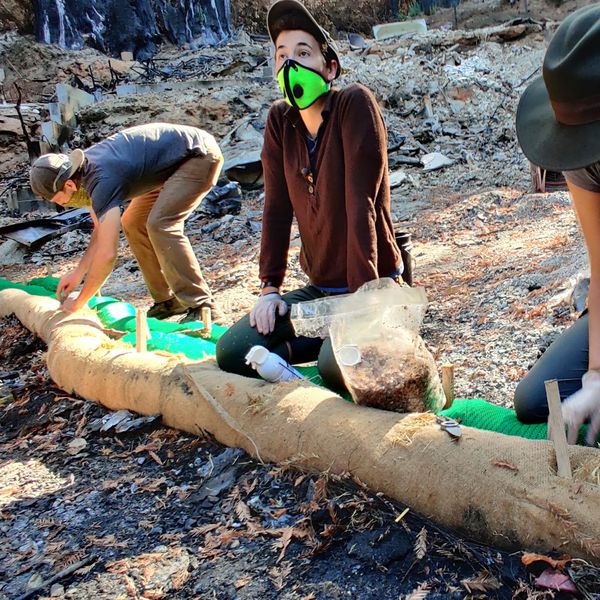PITTSBURGH — A landfill company based in Pittsburgh has applied for a permit to open the first hazardous waste landfill in the state of Pennsylvania, which some fear could threaten waterways and increase air pollution.
Hazardous waste includes anything potentially dangerous or harmful to human health or the environment. It includes things like cleaning chemicals, paint and solvents, corrosive or toxic industrial waste, sludge from air pollution control units and waste from the oil and gas industry, including potentially radioactive substances. Federal regulations require these waste products to be handled and disposed of with special care.
The company that would build the new hazardous waste landfill, MAX Environmental Technologies, Inc., is headquartered in Pittsburgh and operates two landfills in the nearby communities of Yukon and Bulger. The Yukon facility, which is about 29 miles southeast of Pittsburgh, stores and treats this type of waste, but isn’t permitted to dispose of it on site, so any waste that remains hazardous after treatment must be transported out of state for disposal.
If MAX’s permit is granted, the company will construct a new hazardous waste landfill on its Yukon property, which is within one mile of 485 homes and about two and a half miles from the Yough School District. Residents in the area have spent decades fighting to close the existing landfill due to concerns that it’s too close to homes and schools and fears that the hazardous pollution it emits is causing health problems.
“We moved there as newlyweds in our first home in the 1980s, and shortly after we moved there my husband and I started to experience all kinds of health problems,” Diana Steck told EHN, noting that at the time, the landfill was owned by a different company, Mill Services. “My husband developed this terrible rash that was on his face and his back and arms, and I had problems with asthma and started to have issues with unexplained joint pain.”
After Steck’s children were born, they started experiencing unusual health issues too. She saw orange plumes rising from the site and said the acrid smells gave her family blisters in their nostrils and mouths. After reading a news story about the landfill releasing toxic pollutants like heavy metals, arsenic and chromium compounds into the air and water, she joined a group of residents who were also worried about the health impacts, and spent the next several decades unsuccessfully fighting to see the landfill closed. Steck has since moved about 10 miles away, but remains worried.
“The community has been deemed a sacrifice zone,” she said. “This new landfill would be even closer to homes, and it would be closer to Sewickley Creek, a tributary of the Youghiogheny River, which is a drinking water source for many people downstream. Everyone who lives in this area, even those who are further away from the landfill, should be concerned about this.”
More recently, public outcry erupted when MAX Environmental petitioned to have some of the waste it handles reclassified as non-hazardous. Environmental advocates say the company hasn’t been a good neighbor.
“The existing facility is chronically noncompliant,” Melissa Marshall, an attorney and community advocate at the Mountain Watershed Association, told EHN, adding that the facility ranks among the top facilities in the state for violations of its water discharge permit. “A company that can’t follow regulations designed to keep our waterways safe shouldn’t be trusted to become the first hazardous waste landfill in the state.”
Meanwhile, the plant’s operators told EHN that they run the site safely and take all the precautions necessary to protect the environment and surrounding communities.
“We’re obviously aware there have been exceedances of our discharge limits in the past,” said Carl Spadaro, who previously worked as an engineer for the Pennsylvania Department of Environmental Protection and now serves as the environmental manager for MAX Environmental Technologies. “Over the last few years, we’ve increased the maintenance of our wastewater treatment system so we’re keeping it as clean as possible.”
What’s next, and how can residents weigh in?
The Pennsylvania Department of Environmental Protection (DEP) is holding a public meeting and public hearing on the first stage of the permit application on the evening of Thursday, Dec.1. The agency will also collect public comments about the proposed landfill until Jan. 20, 2023.
DEP spokesperson Lauren Camarda noted that this hearing marks the beginning of a lengthy and comprehensive permitting process and said only topics related to siting regulations will be discussed at this first hearing.
“The review process for a hazardous waste disposal facility is a prescriptive and multi-phase process and we are in phase I,” Camarda told EHN. “It is important to stress that if the phase I application is approved, there is still a phase II application that must be submitted that comes with its own comprehensive review process, including a public participation process.”
If the application makes it through the first two phases without being denied by DEP, the agency will publish a notice of draft permit or intent to deny, and there will be additional public hearing and comment periods.
“Normally they try to put sites like this as far away from people as they can,” Marshall said. “It’s very unusual to try and put a hazardous waste landfill this close to people’s homes… so it’s really important for the community to come participate in these hearings.”
- See where toxic PFAS have been used in Pennsylvania fracking wells ›
- Should oil and gas companies be exempt from Pennsylvania’s hazardous waste laws? ›



























